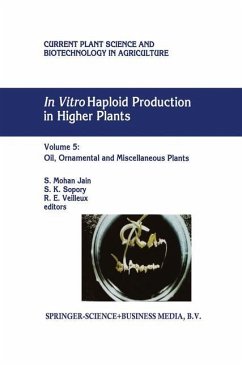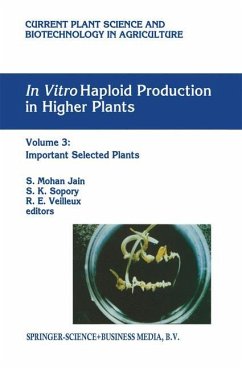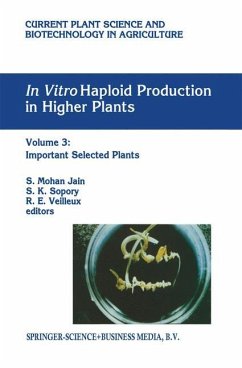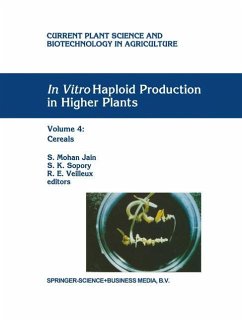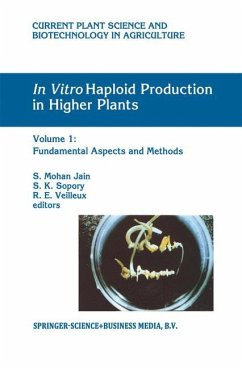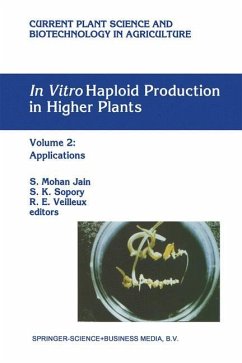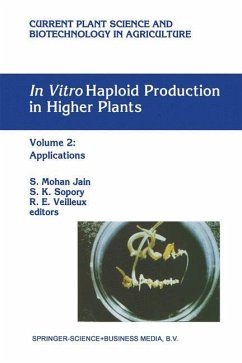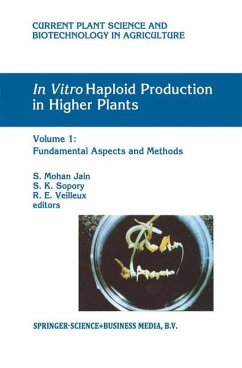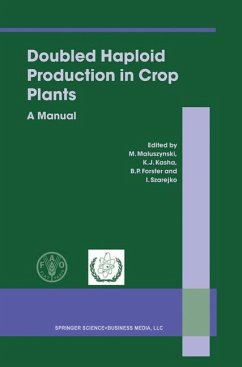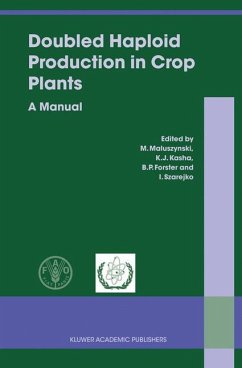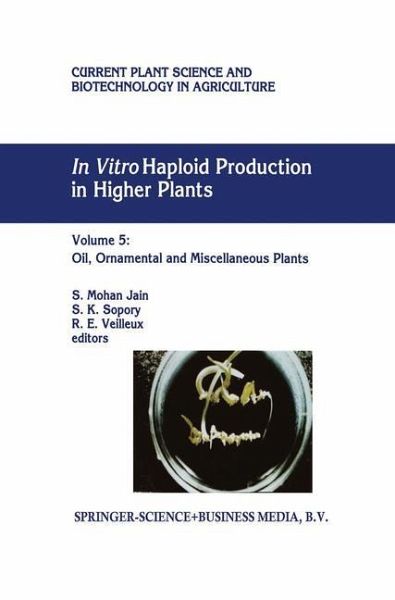
In Vitro Haploid Production in Higher Plants
Volume 5 - Oil, Ornamental and Miscellaneous Plants
Herausgegeben: Jain, Shri Mohan; Sopory, S. K.; Veilleux, R. E.

PAYBACK Punkte
58 °P sammeln!
Since the beginning of agricultural production, there has been a continuous effort to grow more and better quality food to feed ever increasing popula tions. Both improved cultural practices and improved crop plants have allowed us to divert more human resources to non-agricultural activities while still increasing agricultural production. Malthusian population predictions continue to alarm agricultural researchers, especially plant breeders, to seek new technologies that will continue to allow us to produce more and better food by fewer people on less land. Both improvement of existing cultiv...
Since the beginning of agricultural production, there has been a continuous effort to grow more and better quality food to feed ever increasing popula tions. Both improved cultural practices and improved crop plants have allowed us to divert more human resources to non-agricultural activities while still increasing agricultural production. Malthusian population predictions continue to alarm agricultural researchers, especially plant breeders, to seek new technologies that will continue to allow us to produce more and better food by fewer people on less land. Both improvement of existing cultivars and development of new high-yielding cultivars are common goals for breeders of all crops. In vitro haploid production is among the new technologies that show great promise toward the goal of increasing crop yields by making similar germplasm available for many crops that was used to implement one of the greatest plant breeding success stories of this century, i. e. , the development of hybrid maize by crosses of inbred lines. One of the main applications of anther culture has been to produce diploid homozygous pure lines in a single generation, thus saving many generations of backcrossing to reach homozygosity by traditional means or in crops where self-pollination is not possible. Because doubled haploids are equivalent to inbred lines, their value has been appreciated by plant breeders for decades. The search for natural haploids and methods to induce them has been ongoing since the beginning of the 20th century.





